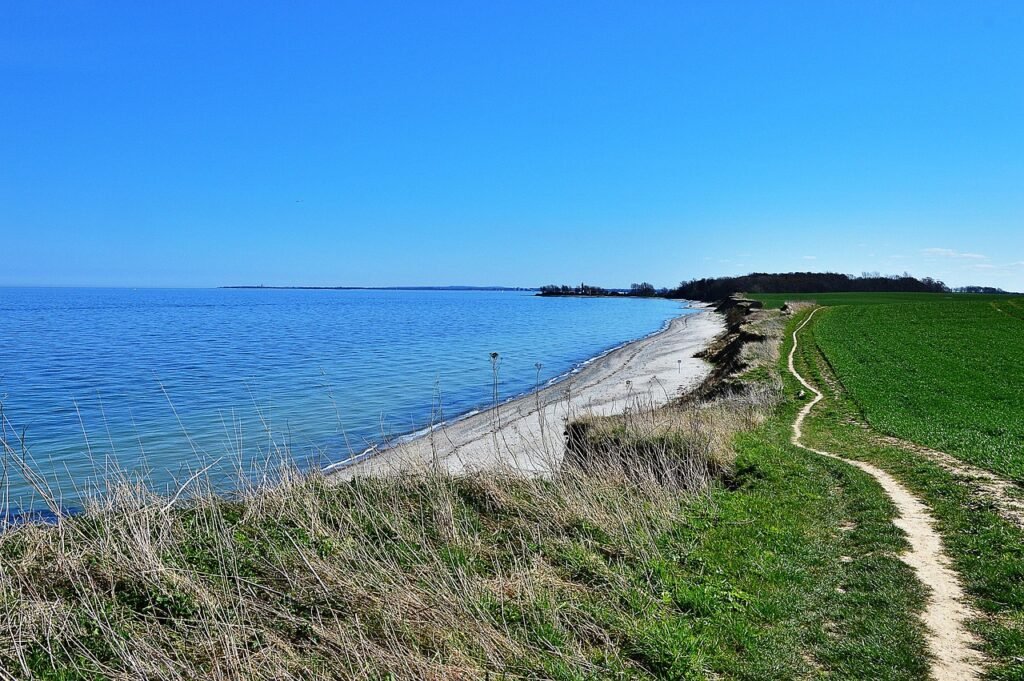The allure of a sun-kissed shore, the rhythmic crashing of waves, and the soft caress of sand beneath your feet – beaches hold a timeless appeal for travelers, adventurers, and anyone seeking respite from the everyday hustle. More than just picturesque landscapes, beaches offer a wealth of recreational opportunities, therapeutic benefits, and ecological significance. This guide explores the multifaceted world of beaches, from understanding their formation and types to maximizing your beach experience and ensuring their preservation.
Types of Beaches and Their Formation
Understanding how beaches are formed and the various types that exist can deepen your appreciation for these dynamic coastal environments.
Beach Formation: A Geological Symphony
Beaches are primarily formed through the gradual accumulation of sediments – sand, pebbles, shells, and even volcanic rock – transported by waves and currents. These sediments are eroded from inland rock formations, riverbeds, and even offshore reefs. Over time, wave action sorts these materials, depositing heavier particles closer to the shore and finer sand further out. The interplay of tides, currents, and wind also shapes the beach’s profile and size.
Sandy Beaches: The Classic Coastal Landscape
These are the most common type of beach, characterized by fine grains of sand derived from eroded rock or coral. The color of the sand varies depending on its source material, ranging from the pristine white quartz sands of Siesta Key Beach in Florida to the pink sands of Harbour Island in the Bahamas.
- Benefits: Comfortable for sunbathing, ideal for building sandcastles, and typically offer gentle slopes into the water.
- Considerations: Can be susceptible to erosion, and the fine sand can sometimes be easily tracked indoors.
Pebble Beaches: Rocky Shores with a Rustic Charm
Instead of sand, pebble beaches are composed of rounded stones of varying sizes. The continuous action of waves smoothes these stones over time, creating a unique texture and visual appeal. Chesil Beach in the UK is a notable example.
- Benefits: Often quieter and less crowded than sandy beaches, offer a unique auditory experience as waves wash over the pebbles.
- Considerations: Can be less comfortable for walking and sunbathing without appropriate footwear, and the steep drop-off into the water can be hazardous.
Shell Beaches: Treasures of the Ocean
These beaches are predominantly made up of fragments of shells, offering a fascinating glimpse into marine life. Shell Beach in Shark Bay, Australia, is almost entirely composed of tiny cockle shells.
- Benefits: Beautiful and unique, often rich in marine biodiversity, providing excellent opportunities for shell collecting (check local regulations first).
- Considerations: The sharp edges of broken shells can be uncomfortable to walk on, and the composition can attract certain insects.
Volcanic Beaches: Dramatic Black Sands
Found near volcanic regions, these beaches feature black sand derived from eroded volcanic rock, such as basalt. Reynisfjara in Iceland and Punalu’u Black Sand Beach in Hawaii are striking examples.
- Benefits: Visually stunning, the dark sand absorbs heat, making the beach warmer, often surrounded by dramatic landscapes.
- Considerations: The black sand can get extremely hot under direct sunlight, and the waves in these areas can be powerful.
Beach Activities and Recreation
Beaches offer a wide array of activities for all ages and interests, from relaxing on the sand to engaging in thrilling water sports.
Swimming and Sunbathing: The Classic Beach Experience
The most popular beach activities involve simply enjoying the water and the sun. Always check local safety guidelines and swim in designated areas patrolled by lifeguards. Use sunscreen with a high SPF to protect your skin from harmful UV rays.
Water Sports: Adventure on the Waves
Beaches are ideal locations for various water sports:
- Surfing: Catch the waves and experience the thrill of riding the ocean. Popular surfing destinations include Bali, Hawaii, and Australia.
- Snorkeling and Scuba Diving: Explore the underwater world and discover vibrant coral reefs and marine life. The Great Barrier Reef in Australia and the Maldives are world-renowned diving locations.
- Kayaking and Paddleboarding: Enjoy a peaceful glide across the water, exploring hidden coves and enjoying the coastal scenery.
- Windsurfing and Kitesurfing: Harness the power of the wind and glide across the water at high speeds. Locations like Cabarete in the Dominican Republic offer ideal conditions.
Beach Games and Activities: Fun for All Ages
Beyond water sports, beaches offer plenty of opportunities for land-based fun:
- Volleyball: Organize a friendly game on the sand. Many beaches have designated volleyball courts.
- Frisbee: A classic beach game that’s easy to learn and fun for all ages.
- Sandcastle Building: Unleash your creativity and build elaborate sand structures.
- Beachcombing: Explore the shoreline for shells, sea glass, and other treasures washed ashore.
Tips for a Safe and Enjoyable Beach Experience:
- Check the weather forecast before heading to the beach.
- Swim in designated areas and obey lifeguard instructions.
- Use sunscreen with a high SPF and reapply regularly.
- Stay hydrated by drinking plenty of water.
- Wear appropriate footwear, especially on pebble or shell beaches.
- Be aware of rip currents and know how to escape them.
- Keep a watchful eye on children at all times.
The Ecological Importance of Beaches
Beaches are not just recreational spaces; they are also vital ecosystems that support a diverse range of plant and animal life.
Coastal Habitats and Biodiversity
Beaches provide habitat for numerous species of birds, crustaceans, insects, and plants. Shorebirds rely on beaches for nesting and foraging, while crustaceans like crabs and sandhoppers play a crucial role in nutrient cycling. Coastal vegetation, such as sea oats and dune grasses, helps stabilize the sand and prevent erosion.
Protection Against Coastal Erosion
Beaches act as natural barriers, protecting inland areas from the full force of waves and storms. Sand dunes, in particular, play a vital role in absorbing wave energy and preventing coastal flooding. The loss of beaches and dunes can significantly increase the vulnerability of coastal communities to erosion and storm surges.
Importance of Beach Conservation
Protecting beaches is essential for preserving biodiversity, safeguarding coastal communities, and maintaining the recreational and economic value of these areas. Conservation efforts include:
- Reducing pollution: Preventing plastic and other pollutants from entering the ocean.
- Controlling coastal development: Limiting construction in sensitive coastal areas.
- Restoring degraded habitats: Replanting vegetation and rebuilding dunes.
- Promoting sustainable tourism: Encouraging responsible beach use and supporting local conservation initiatives.
What You Can Do to Help:
- Reduce your plastic consumption: Use reusable bags, water bottles, and containers.
- Dispose of trash properly: Avoid littering on the beach and participate in beach cleanups.
- Support sustainable tourism: Choose eco-friendly accommodations and activities.
- Respect wildlife: Avoid disturbing nesting birds or other animals.
- Educate others: Spread awareness about the importance of beach conservation.
Finding Your Perfect Beach
With countless beaches around the world, finding the perfect one for your needs can be a delightful, albeit overwhelming, task. Consider these factors:
Defining Your Ideal Beach Experience
- Relaxation vs. Adventure: Are you seeking a tranquil escape for sunbathing and relaxation, or an action-packed vacation with water sports and exploration?
- Crowds vs. Seclusion: Do you prefer lively beaches with plenty of amenities, or secluded coves where you can escape the crowds?
- Family-Friendly vs. Romantic Getaway: Are you traveling with children and need a safe, shallow beach with play areas, or seeking a romantic beach with stunning sunsets and intimate dining options?
- Budget: Beach destinations vary significantly in cost. Consider your budget when choosing a location and accommodation.
Researching Beach Destinations
- Online Resources: Websites like TripAdvisor, Lonely Planet, and travel blogs offer reviews, photos, and information about beaches around the world.
- Travel Guides: Consult travel guides for detailed descriptions, maps, and recommendations for specific destinations.
- Travel Agents: Seek advice from travel agents who can provide personalized recommendations based on your preferences and budget.
- Consider shoulder season: Visiting a popular beach destination during the shoulder season (the months just before and after the peak season) can often result in lower prices and fewer crowds.
Some Popular Beach Destinations:
- Maldives: Known for its pristine white-sand beaches, turquoise waters, and luxurious resorts.
- Bora Bora, French Polynesia: Famous for its overwater bungalows, stunning lagoon, and lush volcanic peaks.
- Maui, Hawaii: Offers a diverse range of beaches, from golden sands to black volcanic shores, as well as excellent surfing and snorkeling opportunities.
- Mykonos, Greece: Renowned for its vibrant nightlife, picturesque beaches, and whitewashed villages.
- Rio de Janeiro, Brazil: Home to iconic beaches like Copacabana and Ipanema, known for their lively atmosphere and stunning scenery.
Conclusion
Beaches are more than just beautiful landscapes; they are dynamic ecosystems, recreational havens, and vital protectors of our coastlines. By understanding their formation, appreciating their ecological importance, and practicing responsible beach use, we can help ensure that these precious resources are preserved for future generations to enjoy. Whether you’re seeking relaxation, adventure, or a deeper connection with nature, the beach offers something for everyone. So, pack your sunscreen, grab your towel, and embark on your next beach adventure!

